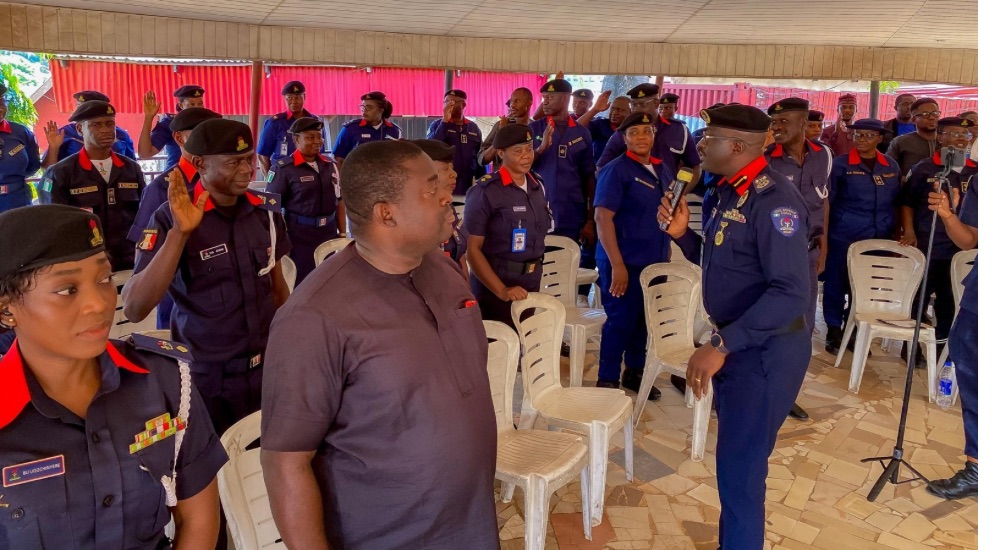NSCDC To Apply Cybercrime Law In Prosecuting Infrastructure Vandals
The Commandant of the Nigeria Security and Civil Defence Corps (NSCDC), Federal Capital Territory (FCT) Command, Dr. Olusola Odumosu, said henceforth investigations and prosecutions of offenders involved in crimes against Critical National Information Infrastructure (CNII) will be carried out strictly under the provisions of the Protection of CNII Order, 2024.
Odumosu made the disclosure during a one-day internal workshop organized for personnel across key departments and units of the Command, including ICT, Critical National Assets and Infrastructure, Intelligence and Investigation, Legal, as well as officers from the Area Commands and Divisions.
According to him, the workshop was convened in line with the directive of the Commandant General of the Corps, Prof. Ahmed Abubakar Audi, following guidance from the Office of the National Security Adviser (ONSA) on the enforcement of the Cybercrimes (Prohibition, Prevention, etc.) Act, 2015 as it relates to the designation and protection of Critical Information Infrastructure.
The FCT Commandant lamented that some individuals apprehended for vandalizing or stealing CNII, such as fibre optic cables, transmission towers, communication bases, and switching stations, were still being charged under conventional laws on theft or malicious damage, which fail to capture the national security and economic implications of such offences.
“It is imperative to note that CNII comprises networks, systems, and facilities—especially in telecommunications, finance, energy, transportation, and defence, whose disruption could compromise national security, economic stability, and public safety,” Odumosu stated.
He emphasised that securing CNII remains a core mandate of the NSCDC, stressing the need for all personnel to work collectively to protect critical infrastructure essential to Nigeria’s growth in the digital age.
Advertisement
“This gathering is not just a response to security threats but a proactive step towards fostering collaboration, innovation, and strategic planning to safeguard our national assets from vandalism,” he added.
Odumosu further noted that cyberattacks are no longer limited to physical destruction, noting that crimes now include digital or hybrid system interference, unauthorized access, and data tampering.
“It must be clear that the Cybercrime law underscores the fact that attacks are no longer just physical, cutting cables or vandalizing installations, but also digital, involving system breaches or data manipulation,” he explained.
He charged participants to replicate the knowledge gained during the workshop within their various units to ensure that vandalism of critical infrastructure is completely eradicated from the FCT.

